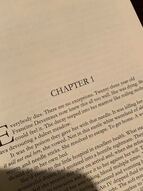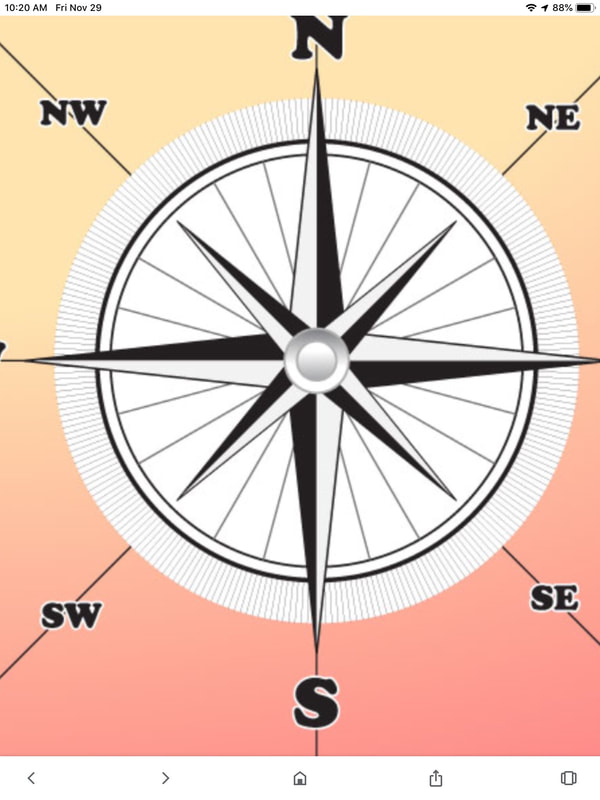 There are a ton of indie books out there. And within this type of book there are numerous thrillers ranging from stories about a secret agent working against the clock to find and defuse a nuclear device to a woman in jeopardy of being murdered by her psychotic ex-husband. Why read one or another? A bigger question is, Why read Lethal Paradise? The story is a fast paced thrill ride, a fun beach read that keeps you turning pages. Many chapters end with cliffhangers. I think you’ll find yourself at the end of each chapters, as the clock strikes midnight, saying, “Just one more chapter.” There is a deep underlying theme about service that doesn’t get in the way of a fun story. I put a quote in the front matter from Mahatma Gandhi. It states: “The best way to find yourself is to lose yourself in the service of others.” This hints at the novel’s theme. By the end you’ll see why that quote is important. And, who knows, the book may inspire you to “find yourself”. Hope Allerd, M.D., is a fiery, intelligent, driven African-American protagonist. She doesn’t back down from a fight. She doesn’t flourish a Glock or Walther PPK, but takes on the villains with wit and guile, using her extensive medical knowledge in a effort to right wrongs. She’d rather outwit the antagonists than outshoot them. Hope also wields compassion like a weapon against poverty and despair. She has a crusader’s heart when it comes to those less well off as we are and she acts decisively. In short, Lethal Paradise is an exciting, nonstop adventure with a moral that will touch your heart. There aren’t many thrillers out there with a strong African-American female physician lead. I urge you to check it out. And, look for further adventures of Doctor Hope Allerd coming in July 2020.
4 Comments
 Rising like an emerald from the azure Caribbean Sea the island of Mousseux is an exotic getaway spot of sun, sand, and surf for visitors, sure to elicit unforgettable times of excitement and balmy relaxation. The above could be an ad agency’s copy for a promotional campaign touting the benefits of vacationing on the fictional Caribbean island of Mousseux, the main setting for my new novel, Lethal Paradise. Mousseux is a tiny island with a mountainous spine in the center. And like all islands in the region it was created by a volcanic eruption, the lava based soil insuring lush green vegetation from the tip of it’s mountain peaks to the edge of the sparkling beaches. Speaking of beaches, they are the island’s biggest attraction. It became legend that a French explorer, one Pierre Leclerc, on discovering the island, stated that the beaches sparkled in the tropical sunlight. He therefore dubbed the island “Mousseux”, which means sparkling in French. The name stuck and tourism blossomed and grew in the late twentieth century. Days of lounging on the beach in the warm tropical sun and of sipping Pina Coladas in the cool of the evening flowed. But, the very attraction to tourists is, ironically, the very reason that Mousseux has a sinister underbelly. The island is a divided nation. On one side of the rising jungle spine is a tropical tourist paradise of luxury hotels, five-star restaurants, and pristine sparkling private beaches. All this is supplemented by a corporate giant of a pharmaceutical company. This side practically oozes money. On the other side of that mountainous divide lies the rub. There, in small clearings within the jungle, are tiny villages containing the island’s poor. They eek out a living by taking menial jobs and gleaning whatever meager natural resources are available. Their beaches are not as pristine. In fact they are rocky. But, those rocky beaches hold potential for the rich. They can be cleaned up and new hotels, casinos, theme parks, and corporate offices can be constructed along those beaches making the rich even richer. And the poor are now a liability. A liability to be exterminated. Refuse to swept away by a diabolical act of terror. Who will stand in the gap for those poverty stricken islanders? Is there anyone willing to risk everything to set things right? This is the background of my new thriller, Lethal Paradise, a novel of intrigue, cover-ups, and heroism. Please, take a look at it. I think you’ll enjoy a thrilling read.  You’re in the book store’s fiction section browsing the new arrivals. A cover catches your eye. You pick up the book and open it to the first chapter. The narrative waxes on about a cottage in an idyllic rolling meadow with grass so green that it takes your breath away. You continue to read about that bucolic scene for four more pages and feel your eyes closing as your consciousness wanes. Your eyes snap back open as you put the book back and move on to the next. The opening chapter of your novel is important. Next to the cover, it may be your most important selling point. So, what makes a good first chapter? What draws a reader in and causes him or her to tuck that book under their arm and head for the check out counter or hit that “Buy” button on Amazon? In the genres of thrillers and action adventure there are certain components that are common to all first chapters. This is not to say that they don’t work in any genre. Let’s take a look at them:
books: Moby Dick, Their Eyes Were Watching God, Pride and Prejudice, The Trial, and Slaughterhouse-Five. How many did you get right?)
 It’s finally happened. My book is ready to drop. After years of writing I had to release my baby into the world. Although, you could call the entire project a labor of love, the final part, the editing, was (putting it mildly) excruciating. Before I say more about my editing ordeal, I must admit that I would have preferred to hire a professional editor. Even a cursory check of blogs and articles on the internet will bear me out. A professional editor for you book is the way to go. However, I wanted to get the book out as I have several others coming down the pike. Unfortunately, I also had significant housing expenses. The final results: no money for an editor. Editing is difficult. And really no fun. But, it’s a necessary part of writing. This is how I did it:
LETHAL PARADISE will be available on Amazon. I hope you take a look at it.
 In a few weeks I will be attending the Florida Writers Conference. This will be the first writers conference I've been to in several years. I’m certainly looking forward to going. If you've never been to a writers conference you may be asking yourself, why attend? After all it's pretty expensive. And it's likely to cut into your vacation time if you have a full time job. But, there are advantages to attending a writes conference. Here are just a few:
 I’ve been working on a collection of science fiction stories for self publication. Now, I’ve finally come to the part I’ve been dreading--creating a cover. I would be the first to agree that the best option is to find a professional designer, give him or her your thoughts on what you’d like, and pay them a ton of cash. I’m sure the results would be breath taking. And would really drive sales. However, for those, like me, who don’t have money to burn, creating your own cover design may be the only viable option. With this in mind and after doing some research, I’ve come up with seven ideas about book covers:
 In a short story collection what story goes where? In my last blog I mentioned that I was putting together a science fiction short story collection for publication, and I reviewed some guidelines on placement of stories. There were strategies like: your best story should be first, your worse should be in the middle, and your longest should be last. I’ve gone over my stories and I have two that I think are my best. One entitled, Before Your Very Eyes, tells a poignant tale of jealousy and revenge while the other, Memory Criterion, is a story that asks the question: how much of who we are is made up of our memories? A third one that I recently wrote and am still editing is a quirky love story set in a sleepy snowed-in New England village. I’ve tentatively titled it, A Curious Entanglement (that may change). I think it’s my third best. It may be a coin toss as to which of the three I lead with. If anyone is interested in reading any or all of the aforementioned stories and giving feedback, please contact me. My weakest story is one I wrote many years ago, entitled Unseen Enemy. It’s about a squad of futuristic soldiers attempting to thwart the government’s use of a doomsday weapon to stop an alien invasion. It’s not a necessarily badly written story (I still find it entertaining). It’s just that my writing has improved over the years. I could leave it out, but I think it still has something to say. My longest of the collection is a human-alien love story of the boy-meets-girl type. It’s also in the editing stage. I’ve tentatively titled it, Becoming. At just over 12,000 words, I suppose it could be classified as a novelette. Well, that’s it for now. As I delve further into getting the book out, I’ll blog more about the experience. Stay tuned.  I finally decided to do it. I’ve had a few science fiction short stories written over the years sitting on my hard drive. So, I collected them into a file on Scriviner with the plan to publish them.. I only had eight so I got to work and wrote two more. Now, with ten short stories I was ready. One problem, though. I’ve never published a short story collection before. Which means I went to work researching the ins and outs of short story collections. Here’s what I found so far: • The title should reflect the overall theme of the collection. But, mine has no overall theme other than each story being a sub-genre of science fiction. A little more checking and I had the solution. The next best idea for a title is the title of one of the stories. Something catchy, something intriging. The one that was always kind of catchy to me was: The Alien Artifact Department. I had my title. • Length. Was there an acceptable minimum and maximum word count? What if my collection didn’t muster up? You’ve probably seen those paperbacks so thin that there’s no room for the title on the spine. The consensus from my research for a minimal word count was around 40,000. A quick bit of arithmetic told me I was in. I had about 56,000 words. • The next problem was arrangement of the stories. Which one went where? This struck me a magazine editor territory. But, a little more searching and I had a few ideas. The best story should be first. The worst can be buried somewherre in the middle. Vary the length of the stories. In other words don’t have a series of 7,000 word stories back to back. And, put the longest one at the end. • I was concerned about needing an introduction. I solved that one by going to Amazon and checking out a few short story collections. You know the “Look Inside” feature that allows you to preview the books. May just had the front matter followed by a table of contents followed by the first story. Guess those intros are for the Stephen King’s of the world. Well, there you have it. This is what I’ve learned thus far. Still have a long way to go. There’s editing, creating a cover, marketing, etc. As I learn more, I’ll pass it along. So, stay tuned. |
Archives
June 2023
Categories |


 RSS Feed
RSS Feed